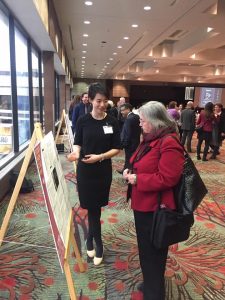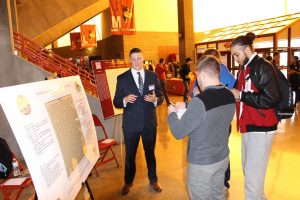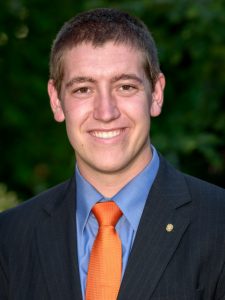The DIFM project has been awarded $70K over two years to perform additional research on the Illinois Corn Growers’ Field Lab. The primary goal of this body of research is to evaluate a range of remote sensing technologies to enhance research conducted at the Illinois N Field lab. This research would facilitate the development of expertise in image analysis and integration with other field information to better understand crop growth dynamics under different N treatments. The remote sensing information will be used to not only increase understanding of treatment responses with high spatial and temporal resolution but also to increase the confidence in estimations generated by yield monitors. It will also create preliminary information to be used in the preparation of grant proposals to conduct new studies in the same field.
Tag Archives: data-intensive farm management
New Funding Source
Luciano Shiratsuchi and Lisa Fultz approved an internal budget of $70,000 from the Louisiana State University (LSU) to build a Digital Agriculture Laboratory to support DIFM in cloud data processing and storage. The initial plan is to invest in equipment (electrical conductivity machines, on-the-go sensors, drones and workstations) to promote multi-disciplinary work, provide teaching materials, and to start up a Precision Agriculture Program at LSU.
Annual Advisory Board Report
The High Plains Journal Interviews the Data-Intensive Farm Management Project!
Farmer Recruitment 2017 in Champaign, IL
In February 2017, we met with sixteen farmers, from Illinois to Ohio, to discuss their possible involvement in the DIFM project’s 2017 growing season. All of these farmers agreed to participate, and their harvest data is coming in soon!
New Project Coordinator
 Caitlin McGuire joined the DIFM team as Project Coordinator in February 2017 following Krystal Montesdeoca’s departure. She received a BA from the University of California, Berkeley in English, and an MFA in Creative Writing at the University of Illinois, Urbana-Champaign. Please contact her at cmcguir3@illinois.edu.
Caitlin McGuire joined the DIFM team as Project Coordinator in February 2017 following Krystal Montesdeoca’s departure. She received a BA from the University of California, Berkeley in English, and an MFA in Creative Writing at the University of Illinois, Urbana-Champaign. Please contact her at cmcguir3@illinois.edu.
CyberGIS’ April Progress at the NCSA
The CyberGIS team has finished the first complete component of the DIFM application suite, the On-Farm Research Developer (OFRD). The key features of the OFRD software include rich capabilities for plot segmentation and field trial creation. The plot segmentation capability supports irregularly shaped fields and provides turning space around the edges of fields, which utilizes AB-line angle to create plots within an 80-foot internal buffer of each field boundary. This capability is applicable to both rectangular and irregularly shaped fields. The team has also implemented a shapefile download feature for application maps to allow users to examine their applications on their personal computers and input application data into their field machinery. The CyberGIS team is busy testing the new features and associated functionalities, and looking for testers. If you would like to be a tester, please contact Nathan Casler (ncasler@illinois.edu) and/or Shaowen Wang (shaowen@illinois.edu).
New Grad Student at UNL
 One of our new DIFM project members, Zhengzheng Gao, is pursuing a Master of Science in Agricultural Economics at the University of Nebraska Lincoln. Gao is from Beijing, China, and earned a Bachelor of Arts in Economics from the University of Minnesota Duluth. She is particularly interested in monetary and fiscal policy, environmental economics, and development economics in China.
One of our new DIFM project members, Zhengzheng Gao, is pursuing a Master of Science in Agricultural Economics at the University of Nebraska Lincoln. Gao is from Beijing, China, and earned a Bachelor of Arts in Economics from the University of Minnesota Duluth. She is particularly interested in monetary and fiscal policy, environmental economics, and development economics in China.
Undergraduate Research Experience

Benjamin Marks, DIFM Undergraduate Research Assistant, presented his poster entitled “The Farming Community’s Perspective on Nutrient Loss Reduction” at the annual Illinois State University Research Symposium on March 31. Ben has been working on the DIFM project with Dr. Maria Boerngen, Assistant Professor of Agribusiness at ISU, for the past year. He conducted a series of interviews with farmers from throughout McLean County, Illinois, to identify the agriculture community’s awareness of nutrient loss issues and the Illinois Nutrient Loss Reduction Strategy, the degree of concern farmers have about nutrient loss, how farmers obtain trusted information used in their management decisions, and what types of changes farmers have made in their practices in response to nutrient loss concerns. This effort has provided farmers a unique opportunity to share their first-hand perspective on the issues the DIFM project is addressing. Ben will be graduating with his bachelor’s degree in agribusiness in May 2017, and has accepted an industry position with Helena Chemical. His DIFM involvement will continue, however, as he and Dr. Boerngen are currently writing a manuscript based on his work with the local farming community.
New Grad Student at UNL
 Gabe Stoll is the one of the newest grad students on the DIFM project. He is working on a M.S. in Agricultural and Biological Systems Engineering.
Gabe Stoll is the one of the newest grad students on the DIFM project. He is working on a M.S. in Agricultural and Biological Systems Engineering.

